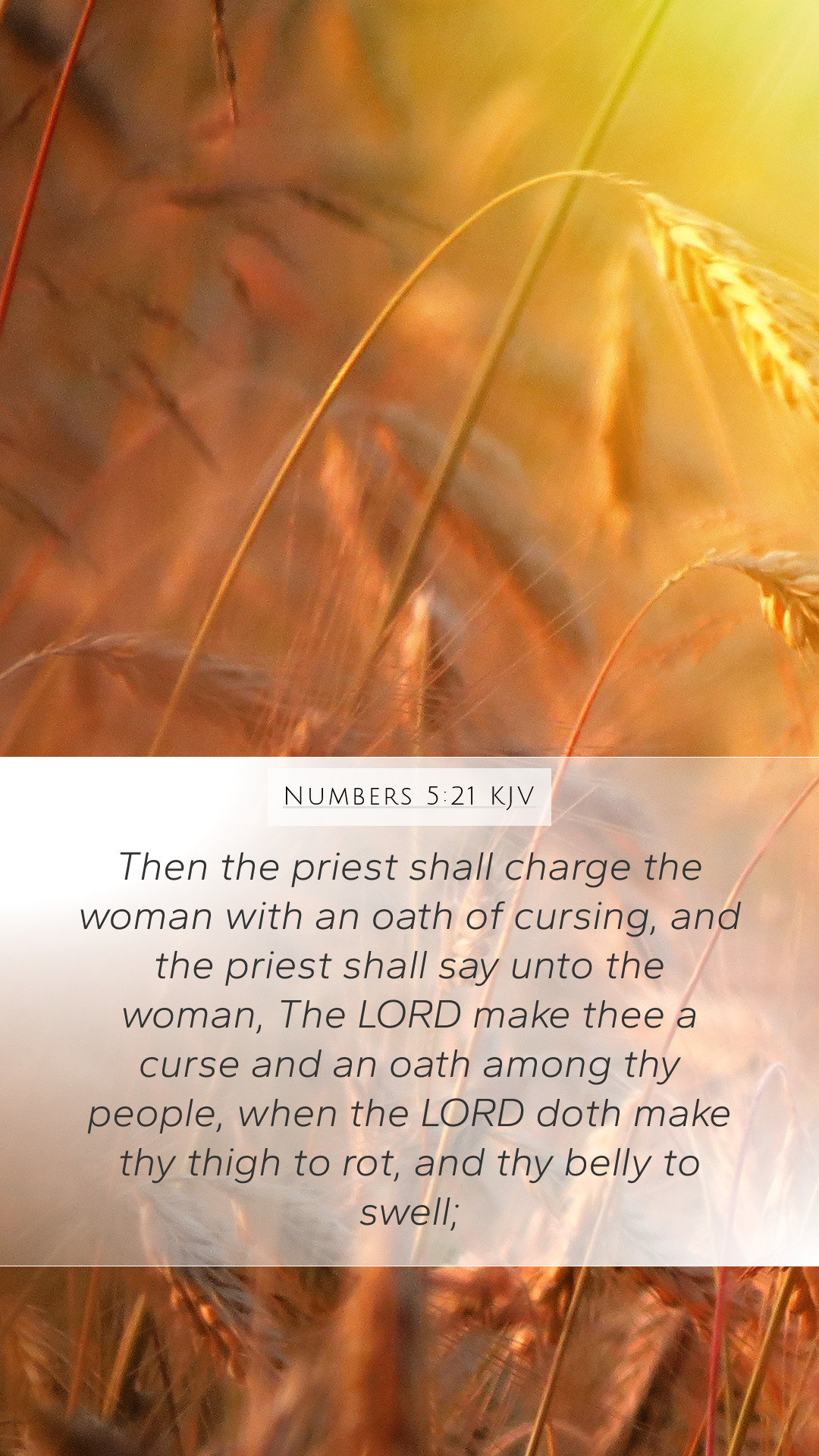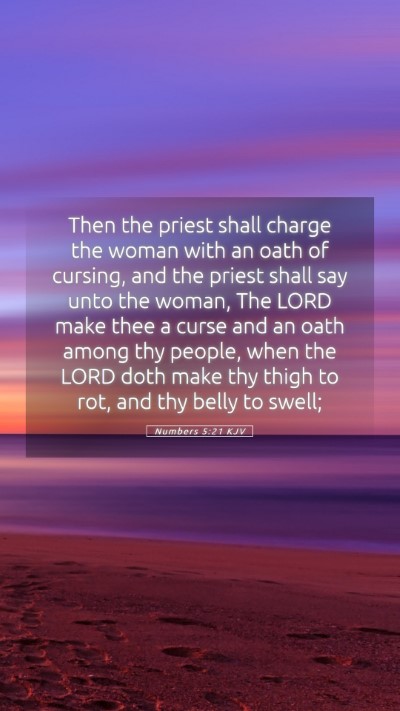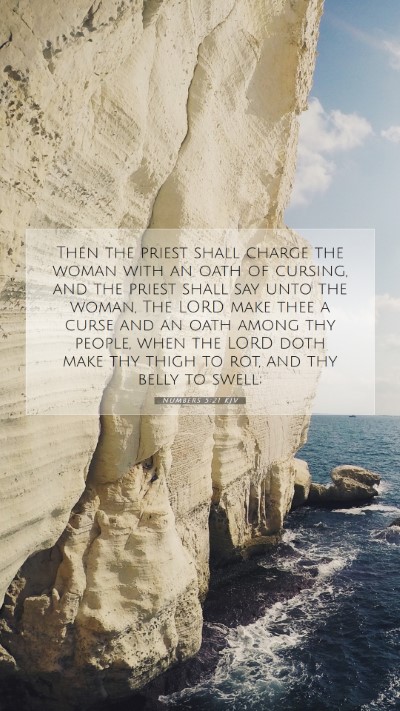Understanding Numbers 5:21
Numbers 5:21 states:
"Then the priest shall put the woman under oath, and say to her, 'If no man has lain with you, and if you have not gone astray to uncleanness while under your husband's authority, be free from this bitter water that brings a curse; but if you have gone astray and are defiled, then the bitter water that brings a curse shall be your portion.'" (Numbers 5:21, NKJV)
Bible Verse Interpretations
This verse is part of the law concerning the test for an unfaithful wife (also known as the "Sotah" procedure). The passage emphasizes the seriousness of marital fidelity and the cultural context surrounding accusations of adultery.
Commentary Insights
Matthew Henry's Commentary
Matthew Henry highlights the solemn nature of the oath taken by the woman. He notes that the process serves not only as a means of verification but as a deterrent against infidelity. The priest’s role emphasizes the seriousness of accusations and the protective measures necessary within the community.
Albert Barnes' Commentary
Albert Barnes elaborates on the ritual's implications. He suggests that the "bitter water" symbolizes divine judgment. The test was designed to reveal the truth, ultimately demonstrating that God is the ultimate judge of fidelity and morality within marriage.
Adam Clarke's Commentary
Adam Clarke provides insight into the cultural practices surrounding marriage in ancient Israel. He reflects on how this testing mechanism not only sought to protect the innocent but also maintained the sanctity of marital relationships, revealing God’s disapproval of unfaithfulness.
Understanding the Context
The significance of Numbers 5:21 lies in its cultural and historical context. In ancient Israel, marriage was a sacred covenant. The potential for accusations of unfaithfulness could lead to ruin for a woman's reputation. This ritual was a safeguard against false accusations and clarified the consequences of marital infractions.
Applications in Modern Life
- Marital Fidelity: This verse stresses the importance of loyalty and fidelity in marriage.
- Honesty and Integrity: Encourages maintaining honesty in relationships to avoid misunderstandings.
- Judgment and Accountability: Highlights the need for accountability within relationships, echoing the biblical principle that there is a right way to handle accusations.
Cross References
- Proverbs 6:32 - Explaining the consequences of adultery.
- Jeremiah 3:8 - God’s indication of unfaithfulness in Israel.
- John 8:4-5 - Reference to the law’s judgment on unfaithfulness.
Conclusion
The examination of Numbers 5:21 through the lenses provided by the commentaries of Matthew Henry, Albert Barnes, and Adam Clarke offers a multifaceted understanding of marital fidelity within a biblical context. As you engage with this scripture, consider its implications for modern relationship dynamics, reinforcing the timeless relevance of biblical teachings.
Further Bible Study Resources
To delve deeper into the meanings of Bible verses, consider the following:
- Bible Study Groups: Engaging in discussions with fellow believers enhances understanding.
- Online Bible Study Classes: Utilize available resources for structured learning.
- Study Guides: Use comprehensive materials to explore biblical narratives and teachings.
Final Thoughts
Reflection on Scripture: When examining biblical passages like Numbers 5:21, approach them with a heart and mind open to understanding both the historical context and personal applications.


